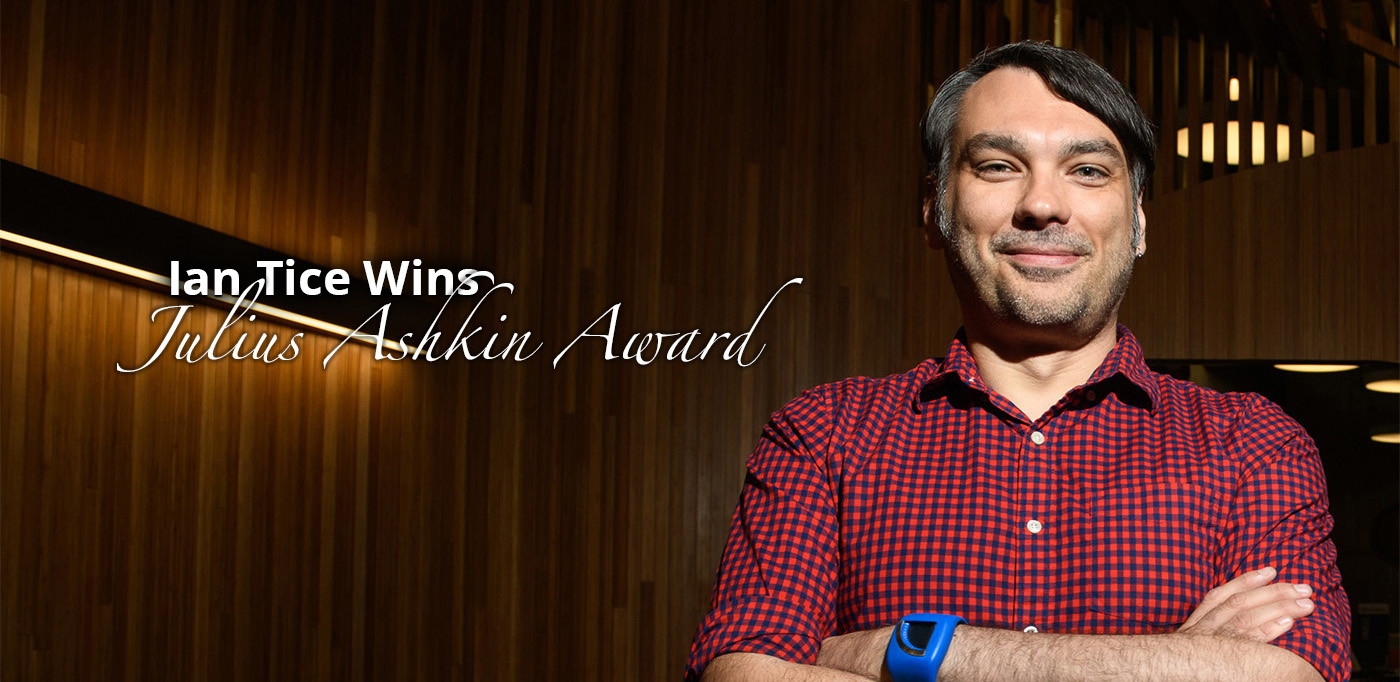
Assistant Professor Ian Tice was awarded the Mellon College of Science’s 2019 Julius Ashkin Teaching Award for his devotion and effectiveness in teaching.
Tice is an inspiring educator, both challenging and guiding his students to become astute mathematicians equipped with inquisitive minds. Tice has crafted hundreds of homework problems and written over 1,300 pages of notes for his courses.
While his homework problems are known for taking hours to complete, by the end, students understand step-by-step how to assemble a proof for a full result; this, Tice says, helps students synthesize mathematical arguments and trains them to think like mathematicians.
Tice knows he demands a lot of his students, but his door is always open. Students will spend hours in his office, be it to get help on a problem, to revisit a concept from lecture that they didn’t understand or to talk more about their interests in math.
“Professor Tice is someone who very clearly loves teaching,” wrote former student Jose Arrillaga. Arrillaga spoke with Tice about his difficulty understanding some results in convergent series. “He made sure to put an additional exercise on that week’s problem set, which helped immensely in clarifying my uncertainties,” he said.
Additionally, Tice is a strong supporter of undergraduate math research. His experience as a research advisor inspired him to apply for a National Science Foundation (NSF) CAREER grant. NSF awarded him $38,500 to fund summer research for 11 students over the next five years. One of Tice’s favorite activities is organizing and supervising the Department of Mathematical Sciences’ poster competition at Carnegie Mellon’s annual undergraduate research symposium, Meeting of the Minds.
Beyond teaching, Tice has been a driving force in developing and modernizing parts of the undergraduate and graduate curriculum in the department.
He completely revamped the undergraduate computational and applied mathematics concentration, helped reform the graduate curriculum in analysis and partial differential equations (PDE) and revised courses in the math honors program. He has developed four new courses, restructured the department’s mathematical modeling and graduate PDE courses and took on teaching a number of these courses, both new and old.
“Ian is an enthusiastic and devoted teacher who has demonstrated the ability to create excellent courses, inspire students and train some of the best undergraduates,” wrote Professor Dejan Slepčev in supporting Tice’s nomination.

Ian Tice
Associate Professor, Mathematical Sciences
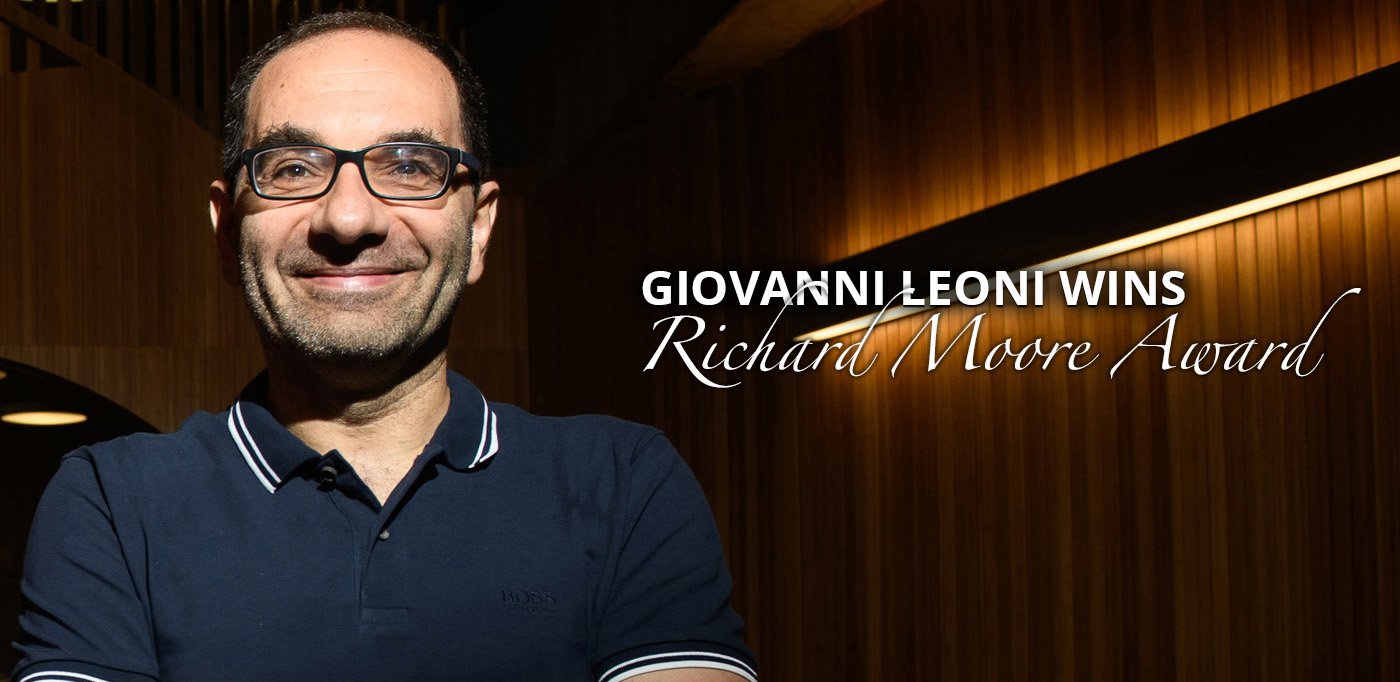
Professor Giovanni Leoni was honored with the Mellon College of Science’s 2019 Richard Moore Award. This award is presented every year to a faculty member in the college who is making substantial and sustained contributions to the educational mission of the college.
Leoni created the department’s Undergraduate Curriculum Committee, which has completely transformed and strengthened the undergraduate program over the course of the last decade. Since its inception, Leoni has served as chair of the committee with the goal of providing excellent mathematical education to all Carnegie Mellon University students, regardless of major or college. The committee’s main achievements include a complete redesign of the introductory course sequence for math and computer science students and a redesign of the honors course sequence for mathematical sciences majors.
Leoni has worked with faculty across the university to tailor the mathematical sciences program to suit students from all majors. His efforts have also helped grow and strengthen the mathematical sciences major at Carnegie Mellon; each cohort has nearly 100 majors, which is three times more than the number of students before the new curriculum was implemented.
Another focus of Leoni’s has been to equip postdoctoral students with the tools to effectively teach upper-level mathematics courses. In the summer of 2017, he implemented an orientation program for all incoming postdocs to instruct them on how to write syllabi in line with Faculty Senate guidelines, how to conduct student assessments, how to work with teaching assistants and how to use Canvas, the university’s learning management system. Leoni also provided constructive feedback for postdocs through “mock” classes. In addition to his focus on the broader educational and administrative aspects of the department, Leoni cares deeply about his students and dedicates his time to making sure they succeed. He holds recitations for courses that do not have a recitation and conducts research projects with students over the summer.
“Giovanni Leoni regularly steps in and takes charge of administrative details that have a very high impact on the education of students in mathematics courses,” wrote Tom Bohman, Alexander M. Knaster Professor and head of the Department of Mathematical Sciences, in his nomination letter for Leoni. “He is a significant part of the great success of our undergraduate program and mathematics.”
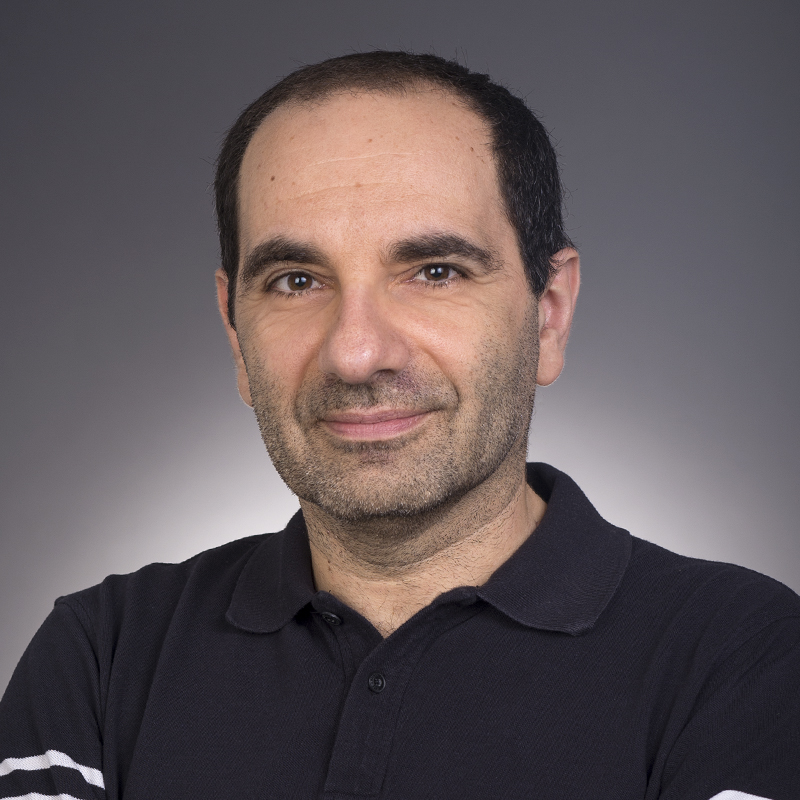
Giovanni Leoni
Professor, Mathematical Sciences
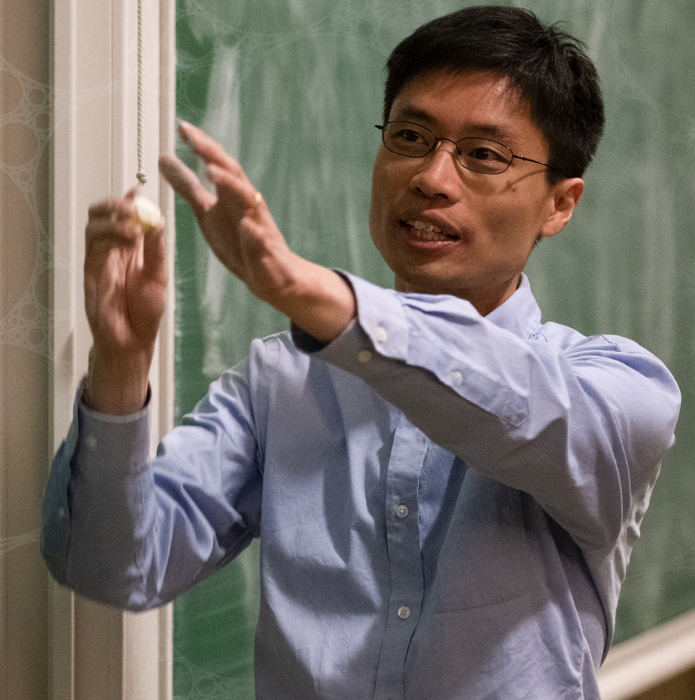
Po-Shen Loh Wins University’s Top Teaching Award
Associate Professor Po-Shen Loh came to Carnegie Mellon in 2010 and quickly became known for his enthusiasm, effectiveness and overall excellence as an instructor. For these reasons, he received Carnegie Mellon University’s 2019 William H. and Frances S. Ryan Award for Meritorious Teaching.
Tom Bohman, Alexander M. Knaster Professor and head of the Department of Mathematical Sciences, said Loh’s most impressive contribution to teaching at CMU has been his restructuring and expansion of the Putnam Seminar, which prepares undergraduate students to participate in the premier Putnam Mathematical Competition. After Loh began teaching the class, enrollment more than tripled to about 200 students each year.
“He teaches it in the style of an ‘inverted’ or ‘flipped’ classroom, with student discussion of the problems and presentation of solutions taking up a part of each class,” Bohman wrote in his nominating letter. “Rather than viewing this class as preparation for a competition, Po re-envisioned it as a problem-guided tour of mathematics, which develops core problem-solving skills that enhance the ability to learn and use higher-level mathematics.”
Loh holds seminar sessions each day and tailors each class to the students’ “presumed knowledge,” Bohman said.
Loh’s efforts have paid dividends as CMU placed first in the competition in 2016 and for the last seven consecutive years has had the second-most students from schools in the U.S. and Canada place among the top 500 individuals. In 2016, three students earned the Putnam Fellow designation by finishing among the top five individuals.
Bohman also noted in his nomination letter the course Discrete Mathematics, which has earned a “sterling reputation” under Loh’s teaching.
“As a department head, I wish that I could assign him to more courses,” Bohman said. Loh also is the lead coach for the U.S. International Mathematical Olympiad team of high school students. In 2015, he brought the team’s training program to CMU, where the team prepares for the competition. The U.S. has won four world championships in the last five years.
CMU junior Deborah Blank commended Loh for his collaborative teaching approach. “Professor Loh would ask the students for ideas or intuitions on how to solve the problem…which fostered an inclusive classroom environment,” she said. “He made me feel that I mattered as an individual and a teammate, and instilled in us a hunger to do our best and to be excited about competition math.”
Senior Nina Edwards said she has never seen a teaching style quite like Loh’s. She praised his dedication to students, creativity in designing problems and his “remarkably engaging and dynamic style of lecturing.”
Junior Theodore Li said Loh was a “math evangelist” who makes math fun.
“Dr. Loh shares his enjoyment and passion for math and can rekindle any jaded student’s love for mathematics, which he would consider more of a success for his class than our constant top placings,” Li said.
Po-Shen Loh Honored with Presidential Early Career Award
Po-Shen Loh has received the prestigious Presidential Early Career Award for Scientists and Engineers (PECASE). The PECASE is the highest honor bestowed by the United States government to outstanding scientists and engineers who are beginning their independent research careers and who show exceptional promise for leadership in science and technology.
A global ambassador for mathematics, Loh travels the world giving talks to diverse audiences, from fellow mathematicians to high school students.
Loh’s research focuses on the intersection of discrete systems, probability and computer science.
He recently attended the World Economic Forum’s Annual Meeting of New Champions in Dalian, China, as a member of the Forum’s Young Scientists community.
Established in 1996, the PECASE acknowledges the contributions scientists and engineers have made to the advancement of science, technology, engineering and mathematics education, and to community service as demonstrated by scientific leadership, public education and community outreach. The awards are conferred annually at the White House following recommendations from participating departments and agencies.
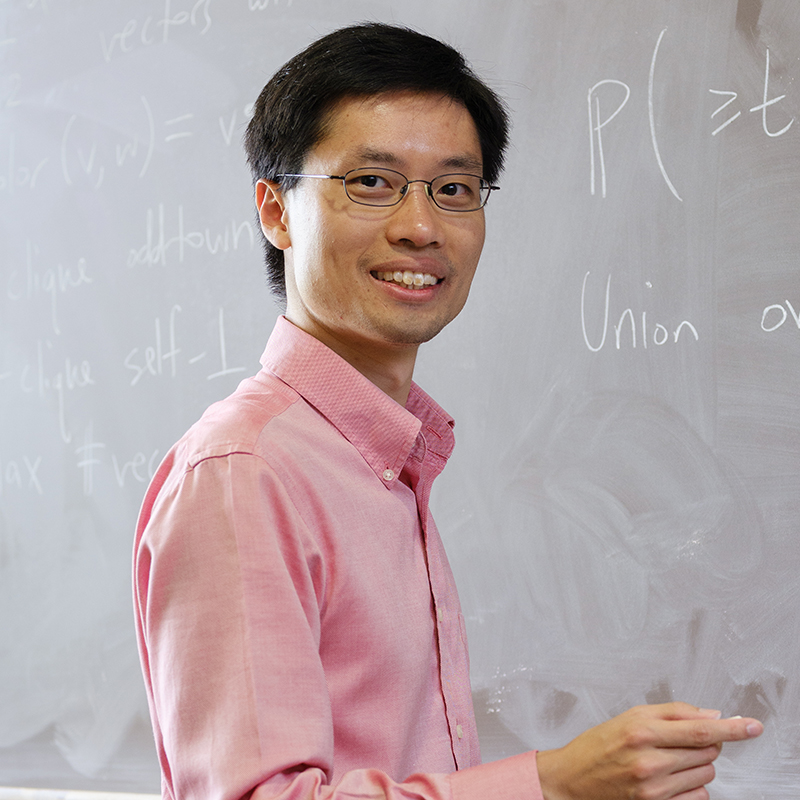
Po-Shen Lo
Associate Professor, Mathematical Sciences
